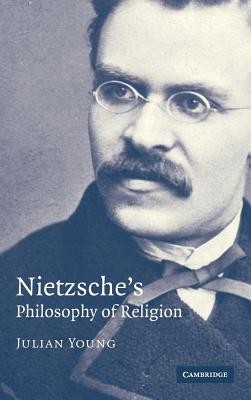
- We will send in 10–14 business days.
- Author: Julian Young
- Publisher: Cambridge University Press
- ISBN-10: 0521854229
- ISBN-13: 9780521854221
- Format: 15.5 x 22.9 x 2 cm, kieti viršeliai
- Language: English
- SAVE -10% with code: EXTRA
Reviews
Description
In his first book, The Birth of Tragedy, Nietzsche observes that Greek tragedy gathered people together as a community in the sight of their gods, and argues that modernity can be rescued from 'nihilism' only through the revival of such a festival. This is commonly thought to be a view which did not survive the termination of Nietzsche's early Wagnerianism, but Julian Young argues, on the basis of an examination of all of Nietzsche's published works, that his religious communitarianism in fact persists through all his writings. What follows, it is argued, is that the mature Nietzsche is neither an 'atheist', an 'individualist', nor an 'immoralist': he is a German philosopher belonging to a German tradition of conservative communitarianism - though to claim him as a proto-Nazi is radically mistaken. This important reassessment will be of interest to all Nietzsche scholars and to a wide range of readers in German philosophy.
EXTRA 10 % discount with code: EXTRA
The promotion ends in 21d.05:35:57
The discount code is valid when purchasing from 10 €. Discounts do not stack.
- Author: Julian Young
- Publisher: Cambridge University Press
- ISBN-10: 0521854229
- ISBN-13: 9780521854221
- Format: 15.5 x 22.9 x 2 cm, kieti viršeliai
- Language: English English
In his first book, The Birth of Tragedy, Nietzsche observes that Greek tragedy gathered people together as a community in the sight of their gods, and argues that modernity can be rescued from 'nihilism' only through the revival of such a festival. This is commonly thought to be a view which did not survive the termination of Nietzsche's early Wagnerianism, but Julian Young argues, on the basis of an examination of all of Nietzsche's published works, that his religious communitarianism in fact persists through all his writings. What follows, it is argued, is that the mature Nietzsche is neither an 'atheist', an 'individualist', nor an 'immoralist': he is a German philosopher belonging to a German tradition of conservative communitarianism - though to claim him as a proto-Nazi is radically mistaken. This important reassessment will be of interest to all Nietzsche scholars and to a wide range of readers in German philosophy.


Reviews